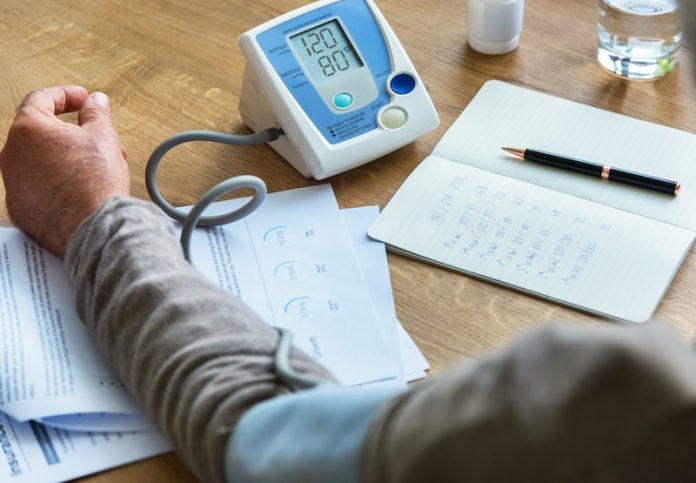
High systolic blood pressure, the top number in a blood pressure reading, measures the pressure in your arteries when your heart beats. A consistent reading of 130 mm Hg or higher is a major health concern as it raises the risk of serious conditions like heart disease and stroke.
Fortunately, there are natural ways to lower systolic blood pressure, supported by scientific research. Here’s an easy-to-understand guide to these strategies.
Exercise Regularly: One of the most effective ways to reduce systolic blood pressure is through regular physical activity. Exercise strengthens the heart, allowing it to pump more efficiently with less effort. As your heart works less hard, the pressure on your arteries decreases, which lowers blood pressure.
The American Heart Association suggests aiming for at least 150 minutes of moderate-intensity activity, like walking or cycling, or 75 minutes of more intense exercise, such as running, each week. Studies show that regular exercise can lower systolic blood pressure by 5 to 8 mm Hg.
Eat a Healthy Diet: Your diet plays a crucial role in managing blood pressure. Eating more whole grains, fruits, vegetables, and lean proteins can have a big impact. The DASH diet (Dietary Approaches to Stop Hypertension) is specifically designed to help lower blood pressure.
This diet is rich in nutrients like magnesium, potassium, and calcium, all of which help regulate blood pressure. Research indicates that following the DASH diet can reduce systolic blood pressure by up to 11 mm Hg for people with high blood pressure.
Reduce Salt Intake: Salt has a strong connection to high blood pressure. Too much sodium causes the body to hold onto extra fluid, which increases the pressure in your blood vessels. Reducing salt intake can lower systolic blood pressure by 5 to 6 mm Hg.
Health experts recommend keeping daily sodium intake below 2,300 milligrams (about one teaspoon of salt). Even cutting back a little can make a noticeable difference in blood pressure and heart health.
Limit Alcohol and Caffeine: Drinking too much alcohol can raise your blood pressure. Limiting alcohol to one drink a day for women and two drinks for men can lower systolic pressure by around 4 mm Hg.
Caffeine, on the other hand, may cause a temporary rise in blood pressure, but its long-term effects aren’t fully understood. Reducing caffeine intake might also help keep blood pressure under control.
Lose Weight if Necessary: If you’re overweight, losing even a small amount of weight can significantly lower your blood pressure. For every kilogram (about 2.2 pounds) you lose, your systolic blood pressure may drop by about 1 mm Hg.
Maintaining a healthy weight also helps your heart pump blood more efficiently, which reduces strain on your arteries.
Manage Stress: Chronic stress can contribute to high blood pressure, although more research is needed to fully understand this link. Stress can lead to unhealthy habits like overeating or drinking too much alcohol, both of which can raise blood pressure.
Managing stress through relaxation techniques like meditation, deep breathing, or mindfulness can help lower your blood pressure naturally.
Get Enough Sleep: Quality sleep is important for maintaining healthy blood pressure. Not getting enough sleep has been linked to higher blood pressure levels. Most adults need 7 to 8 hours of good sleep each night.
To improve sleep quality, try to stick to a regular sleep schedule, create a comfortable sleep environment, and avoid stimulants like caffeine close to bedtime.
In summary, lowering systolic blood pressure naturally involves making simple lifestyle changes, such as regular exercise, eating a balanced diet, reducing salt and alcohol intake, managing weight, reducing stress, and getting enough sleep.
By adopting these habits, you can significantly lower your systolic blood pressure and improve your overall heart health.
If you care about blood pressure, please read studies about unhealthy habits that could increase high blood pressure risk, and people with severe high blood pressure should reduce coffee intake.
For more information about blood pressure, please see recent studies that early time-restricted eating could help improve blood pressure, and results showing plant-based foods could benefit people with high blood pressure.
Copyright © 2024 Knowridge Science Report. All rights reserved.



